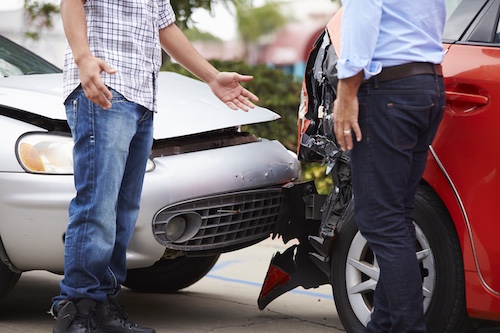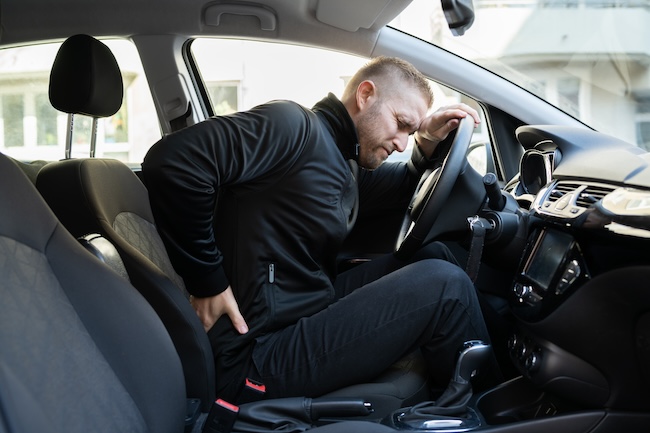Understanding Georgia Comparative Negligence Laws
When an accident happens, figuring out who is at fault is not always simple. In Georgia, the law uses a system called modified comparative negligence to decide how responsibility is shared and how much compensation each party may receive. This rule applies to car accidents, slip and fall cases, and other personal injury claims. If you were injured in Georgia and may be partially at fault, knowing how comparative negligence laws work is essential.
In this blog, you will learn how Georgia comparative negligence laws affect personal injury claims, how fault is calculated, and why working with an experienced Atlanta car accident lawyer can help you recover fair compensation even if you share some responsibility for the accident.
What Is Comparative Negligence?
Understanding comparative negligence is important for anyone involved in a personal injury case in Georgia. This section explains how fault is shared and how it affects the amount of compensation an injured party may recover.
Definition of Comparative Negligence
Comparative negligence is a legal principle used to assign responsibility when multiple parties share fault in an accident. In Georgia, this rule applies to personal injury cases, including car accidents, slip and fall injuries, and wrongful death claims. The goal is to distribute liability fairly based on each party’s actions.
Comparative vs. Contributory Negligence
Georgia follows comparative negligence, not contributory negligence. Under contributory negligence rules, a person who is even slightly at fault may not recover damages. This is not the case in Georgia. Here, the law allows an injured person to recover compensation as long as they are less than 50% responsible.
Modified Comparative Negligence in Georgia
Georgia uses a modified comparative negligence system. According to O.C.G.A. § 51-12-33, an injured party can recover damages only if they are found to be less than 50% at fault. If they are 50% or more at fault, they are barred from receiving any compensation. If the injured person is partially negligent but less than 50%, their total compensation is reduced by their percentage of fault.
Importance in Personal Injury Cases
Understanding comparative negligence in Georgia can help accident victims make informed decisions. Whether the case involves a car accident or another type of personal injury, knowing how fault is assigned is key to pursuing fair compensation. A car accident lawyer can help evaluate fault percentages and explain how modified comparative negligence laws apply to a specific case.
Georgia’s Modified Comparative Negligence Rule
Georgia law uses a modified comparative negligence system to decide how damages are awarded in personal injury cases. This rule directly affects how much compensation an injured party can receive based on their share of fault.
What the Law Says
Georgia follows a modified comparative fault rule. This means that an injured person can recover compensation only if they are less than 50% responsible for the accident. If their percentage of fault is 50% or more, they cannot recover damages.
How Fault Reduces Compensation
If an injured party is found to be partially at fault, their compensation is reduced by their percentage of fault. For example, if a jury finds that the injured person is 20% at fault, any damages awarded will be reduced by 20%. This rule applies to car accident cases, slip and falls, and other personal injury claims.
Why It Matters in Car Accident Cases
In Georgia car accident claims, assigning fault is a key part of determining the outcome. Insurance adjusters, attorneys, and courts use the modified comparative negligence rule to decide who pays and how much. Accident victims must understand how their own comparative negligence can reduce or eliminate compensation.
Role of Evidence in Fault Assignment
Establishing negligence requires clear evidence. Police reports, eyewitness statements, medical records, and accident photos all help determine how fault is divided among the parties involved. Without sufficient evidence, proving another party’s fault can be difficult.
Working with a Car Accident Lawyer
A car accident lawyer can help protect the injured person’s right to recover damages. They understand how to apply Georgia comparative negligence laws and how to counter claims made by the insurance company. Their role is to ensure that fault is assigned fairly and that clients receive compensation that reflects the true circumstances of the accident.
How Fault Is Assigned in Georgia Personal Injury Cases
In Georgia, determining who is at fault in a personal injury case is essential for deciding how damages are awarded. The process involves evaluating the actions of all parties involved using evidence and legal standards.
The Role of Comparative Negligence
Georgia uses a modified comparative negligence system. This means that each party’s share of fault affects how much compensation can be recovered. If the injured party is 49% or less at fault, they may still recover damages. Their compensation is reduced by the percentage of their own negligence.
Evidence Used to Assign Fault
Fault is assigned based on the strength of available evidence. Common sources include police reports, eyewitness statements, traffic camera footage, and photographs from the scene. Medical records and property damage reports also play a role in proving negligence.
Actions of the Parties Involved
Courts and insurance adjusters review each party’s actions to see if they failed to use ordinary care. For example, a driver making a left turn without yielding may be considered more at fault than a speeding driver who had the right of way. Multiple parties can share responsibility for a single incident.
Legal Duty and Breach
To establish negligence, the injured person must show that the other party had a legal duty to act with reasonable care and failed to do so. A breach of this duty must directly cause the injury. Without proving these elements, the injured party may not recover compensation.
The Role of Insurance Adjusters
Insurance companies use their own process to evaluate fault. Adjusters look at police reports, recorded statements, and physical evidence. They may attempt to shift more blame to the injured party to reduce the payout. A personal injury lawyer can challenge unfair fault assignments.
Importance of Proving Fault
Assigning fault directly affects the outcome of a personal injury case. In Georgia, even being slightly more than 49% at fault will prevent the injured person from recovering damages. For this reason, gathering evidence and building a clear case is critical. A car accident lawyer can help ensure fault is evaluated accurately and fairly.
Impact on Car Accident and Personal Injury Cases
Georgia’s modified comparative negligence laws affect how much compensation an injured person can receive after an accident. The percentage of fault assigned to each party directly influences the outcome of a personal injury claim.
Car Accident Cases Involving Shared Fault
In Georgia car accident cases, both drivers may share fault. One driver may run a red light while the other may be speeding. If a court finds that the injured driver is less than 50% at fault, they can still recover compensation. However, their total compensation is reduced by their share of fault.
Personal Injury Claims Beyond Car Accidents
Comparative negligence applies to more than just car accidents. It affects slip and fall injuries, workplace accidents, and wrongful death cases. In all personal injury cases, fault must be clearly proven with sufficient evidence. This includes showing that the other party failed to exercise ordinary care.
Financial Impact on Compensation
The injured person’s compensation is reduced by their percentage of fault. For example, if a jury awards $100,000 in damages but finds the injured party 30% responsible, the final award is $70,000. If they are 50% or more at fault, they receive nothing under Georgia law.
Role of Legal Representation
A personal injury lawyer plays a key role in protecting the rights of accident victims. They gather evidence, challenge the findings of insurance adjusters, and present the injured person’s case clearly. Their goal is to reduce the percentage of fault assigned to their client and help recover fair compensation.
Why Comparative Negligence Matters
Comparative negligence in Georgia can be the deciding factor in whether someone recovers damages or not. Accident victims who do not understand this rule may accept a settlement that does not reflect their legal rights. Knowing how modified comparative negligence laws work is critical to any personal injury action in Georgia.
Contact an Experienced Atlanta Car Accident Attorney ASAP!
If you’ve been injured in a car accident and are unsure how Georgia’s comparative negligence laws apply to your situation, don’t wait to get the help you need. Our team at Atlanta Metro Law has the experience and knowledge to protect your rights, build a strong case, and fight for the compensation you deserve.
Contact us at 864-894-2045 for a free claim review today!





